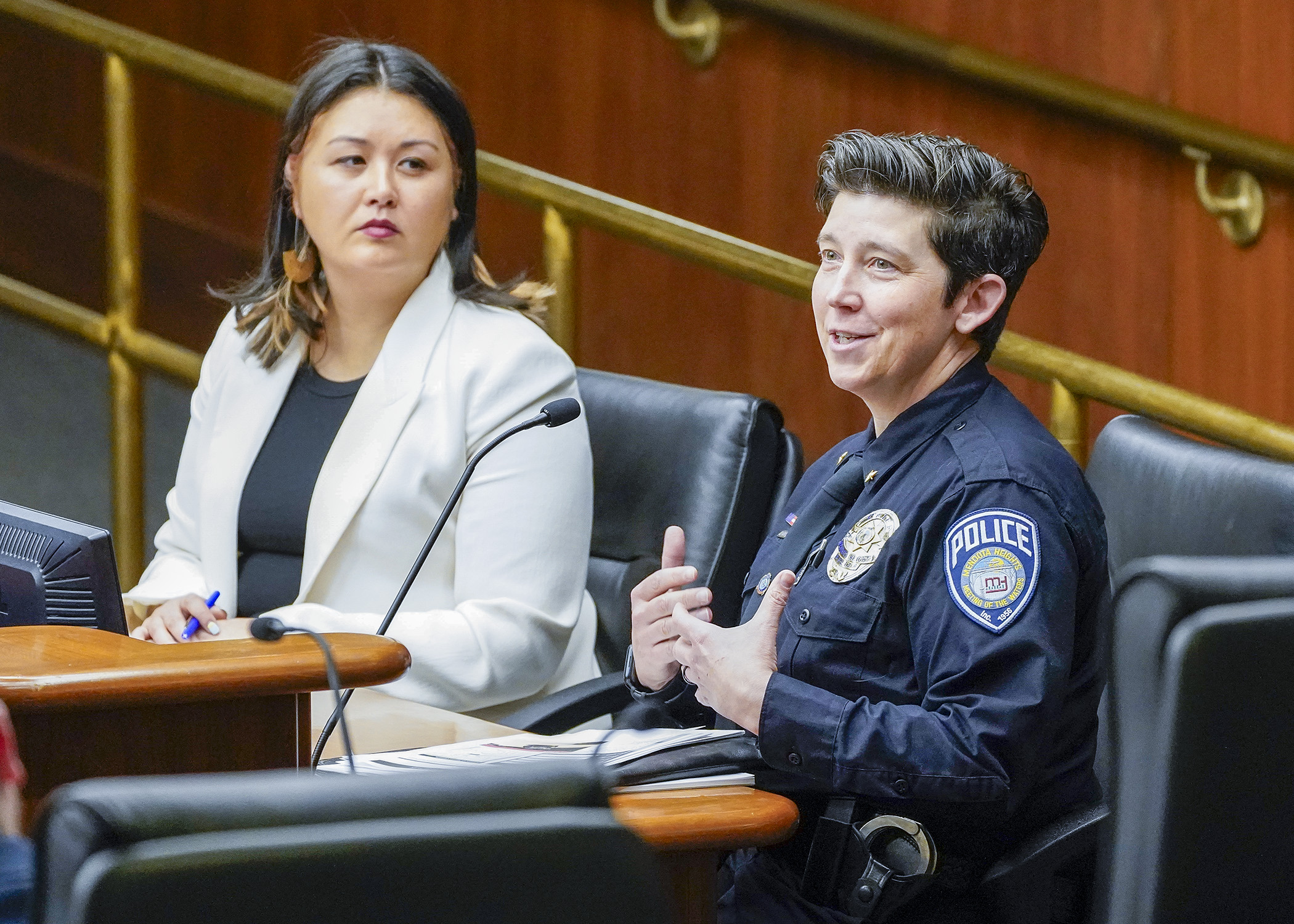Traffic safety camera bill wins approval in transportation committee

Rep. Samantha Sencer-Mura (DFL-Mpls) sometimes thinks society has an abusive relationship with cars.
“We accept a lot of terrible things that come from cars that we would not accept from other things,” she said, citing carbon emissions as an example.
During its Thursday hearing, the House Transportation Finance and Policy Committee also heard a reference to 31 traffic deaths in Minneapolis the past two years due to speeding or running red lights.
“If 31 people died on light rail we would be up in arms," Sencer-Mura said. "It would be the only thing this committee would be talking about."
Street design is the biggest factor in road safety, she said. But while many of those projects are underway, cameras that could catch people speeding or running red lights may provide an important safety tool in the meantime.
Sencer-Mura sponsors HF2098 which, as amended, would give local and state governments the authority to enforce speed limits and red-light laws with cameras in work zones and within 2,000 feet of a school.
The bill was approved 6-5 and sent to the House Judiciary Finance and Civil Law Committee.
It would set penalties at $40 but they could go up to $80 for excessive speeding, defined as at least 20 mph over the posted speed limit.
Cameras would only take pictures of rear license plates and not identify drivers or passengers. Violations would not go on an individual’s driving record and could not be used to suspend anyone’s license.
Besides allowing local and state government to use cameras, the bill would direct the Public Safety and Transportation departments to create a pilot program with cameras in at least two trunk highway work zones.
Testifiers noted multiple studies showing cameras are effective, and several said the need is greater now than ever.
Nichole Morris, director of the University of Minnesota’s HumanFIRST Laboratory, said research shows a massive post-COVID jump in speeding and speed-related traffic fatalities. For example, the number of Minnesota State Patrol citations for speeds more than 100 mph went from 533 in 2019 to 1,150 in 2022. She said the problem is too widespread for current enforcement measures.
[MORE: Read letters in support, opposition]
Sencer-Mura said a lot of work went into the bill aiming to address civil liberty, privacy and equity concerns.
For example, camera data could only be used to enforce speeding or red-light violations and could not be used for any other prosecution, lawsuit or administrative process.
Other provisions in the bill state:
- there could be no more than one camera per 10,000 residents;
- the first violation would be a warning;
- only traffic enforcement agents would be authorized to issue tickets;
- vehicles would have to be traveling at least 10 mph over the speed limit to be ticketed; and
- revenue generated by traffic cameras would first be used to pay for the system. The rest would go to traffic-calming measures.
Rep. Nolan West (R-Blaine) appreciates the limits on where cameras could go but expressed reservations about automatic enforcement mechanisms. He said public engagement measures should include referendums.
“That would show true consent of the people to be monitored in this way,” he said.
Related Articles
Search Session Daily
Advanced Search OptionsPriority Dailies
Speaker Emerita Melissa Hortman, husband killed in attack
By HPIS Staff House Speaker Emerita Melissa Hortman (DFL-Brooklyn Park) and her husband, Mark, were fatally shot in their home early Saturday morning.
Gov. Tim Walz announced the news dur...
House Speaker Emerita Melissa Hortman (DFL-Brooklyn Park) and her husband, Mark, were fatally shot in their home early Saturday morning.
Gov. Tim Walz announced the news dur...
Lawmakers deliver budget bills to governor's desk in one-day special session
By Mike Cook About that talk of needing all 21 hours left in a legislative day to complete a special session?
House members were more than up to the challenge Monday. Beginning at 10 a.m...
About that talk of needing all 21 hours left in a legislative day to complete a special session?
House members were more than up to the challenge Monday. Beginning at 10 a.m...